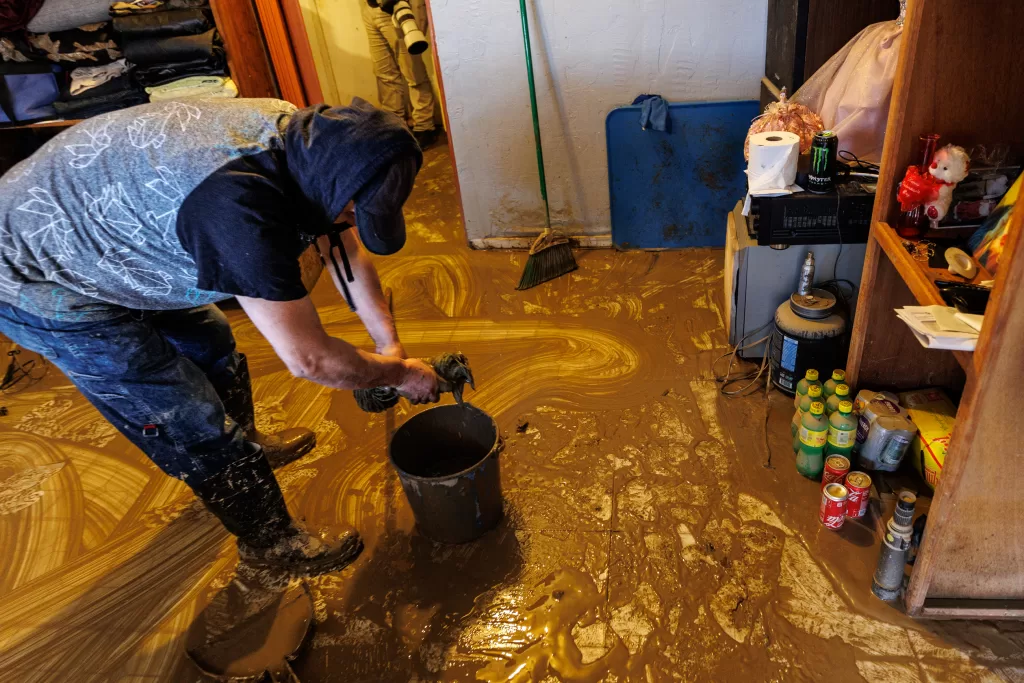
Photo by Kevin Painchaud/Lookout Santa Cruz
The People’s Tribune interviewed Nancy Faulstich, director of Regeneración-Pajaro Valley Climate Action, in mid-April. Nancy was helping at the Center for Farmworker Families’ monthly distribution of food and supplies in Watsonville, California. The Center’s monthly distribution has increased this month, reaching 1,000 farmworker families. Unusual atmospheric rivers flooded the town and fields of the neighboring farmworker community of Pajaro which the distribution also serves. Many families there remain homeless, jobless, and in need of food. We spoke with Nancy Faulstich about the impact of climate change on the area and what her organization is doing.

People’s Tribune: How long have you been doing climate work?
Nancy Faulstich: We formed as an organization in 2016, but I had started organizing here in Watsonville in 2012. I’m a former preschool and kindergarten teacher, and then I had a baby who’s now 14. But when she was a few years old is when I really got it in terms of what was happening with the climate and what it meant to be parenting somebody who could theoretically still be alive in 2100 with what scientists were saying about climate change. So, we formed a group with community members here locally and have been working with a lot of different partners to address climate change, to spread awareness through education and advocacy with local politicians for sound climate policies. And, all of our work has been focused with the people you’re seeing here. It’s at the center of what we do.
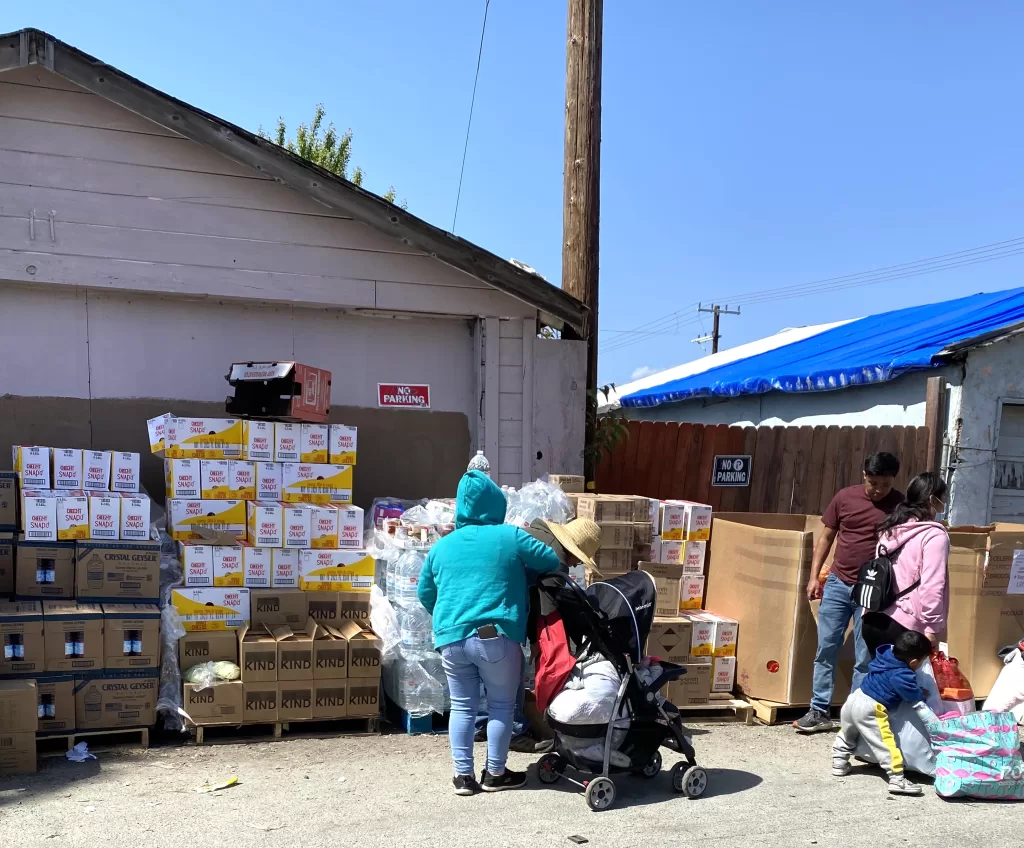
We know that worldwide, as well as here locally, the people who have done the least to cause the climate disruption, the people who’ve lived lightly on the Earth and who haven’t burned many fossil fuels, are the ones who are really on the front lines of being hurt first and worst when there’s any kind of climate extreme weather.
PT: What prompted you to come to help out with this particular effort?
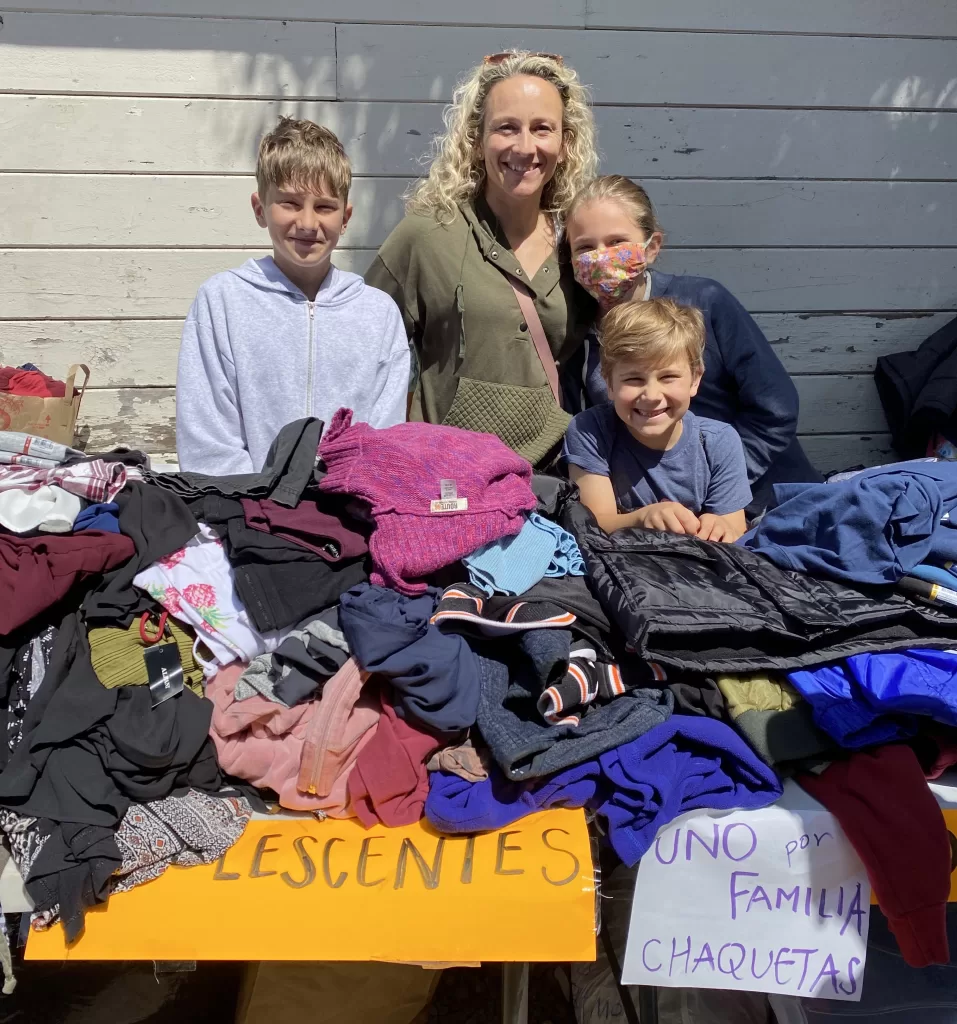
We’ve worked in partnership with the Center for Farmworker Families for a number of years. This extreme weather has really magnified the need, and the numbers of people showing up for these events are larger than before. I’m actually coming today on work time and I think there’s other major nonprofits in the area who I believe have staff here today. But also, volunteers come from different church and school groups. So it’s a combination of people trying to support. You may have seen that there’s some acupuncturists and massage therapists volunteering their services here too.
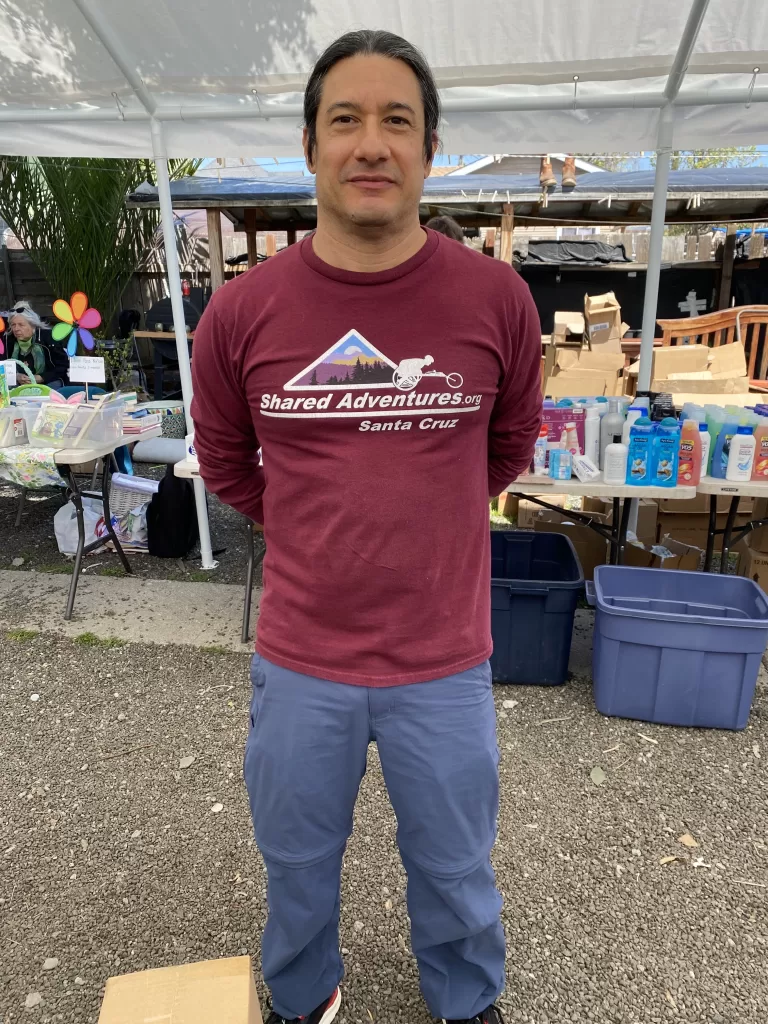
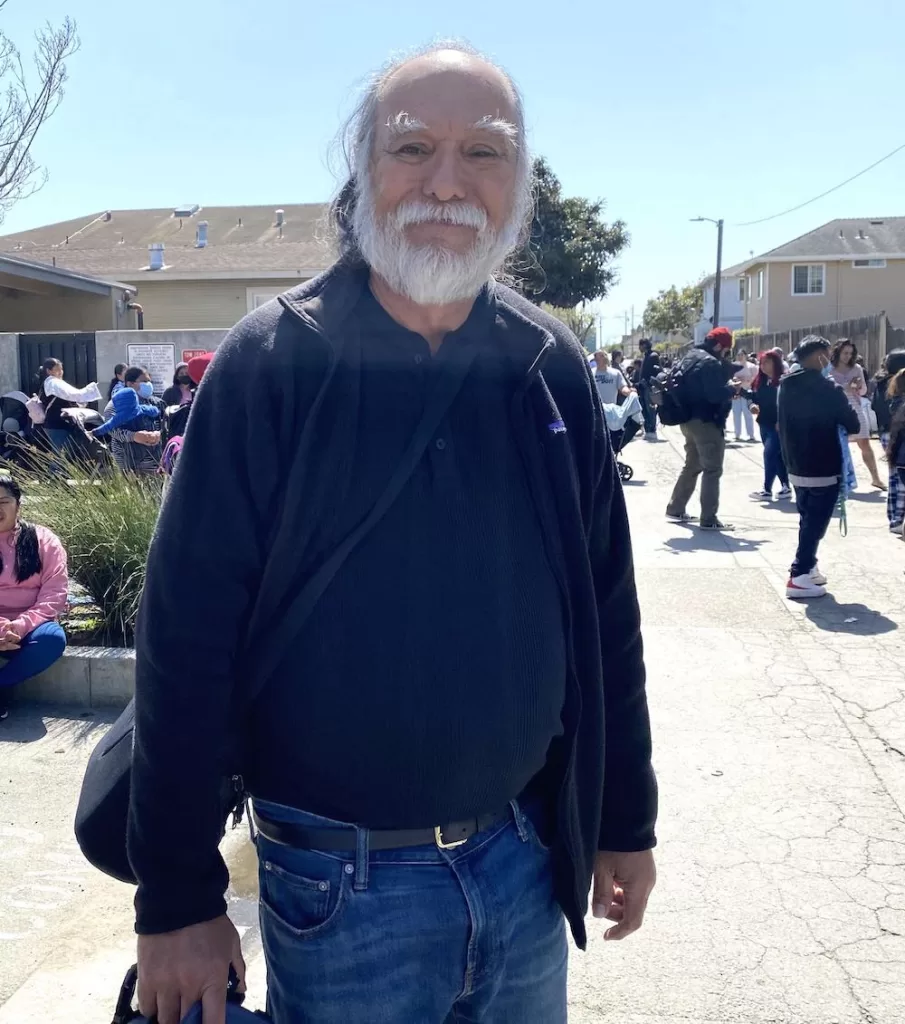
PT: Do you think the disaster here is rooted in climate change?
NF: It’s a combination of things. Certainly, the atmospheric rivers that we are having. I’ve lived in California since the eighties, and I remember a couple of wet winters, but I don’t even remember hearing the term atmospheric river until a couple of years ago. And we know that with global warming, warm air holds more water. So we expect heavier rainfalls when the rain comes. And we expect to get a kind of whiplash from extreme drought, to extreme wet. So in that sense, I think climate change is a piece of it.
But [Pajaro] is also an example of neglect and under-investment, particularly because this is such a low-income area. They’ve known since the sixties that this levee would fail. It did fail a couple times in the nineties with some serious flood damage. And then they kind of changed the equation and are taking into consideration environmental justice. And they finally arranged to get all the money together to do a major upgrade. And then this flood happened, and it’s going to be 10 years before the whole upgrade finishes. So who knows how many more storms. And then we have to consider whether the level of upgrade is even sufficient. Because if it was designed for a 1-in-100-year flood, but now a 1-in-100-year flood is coming every 20 years instead of once in 100 years, or if there’s even a bigger one – we don’t really know how to upgrade our infrastructure quickly enough.
PT: Has the broken levee been repaired?
NF: I think some very temporary patches were done. And now they’re trying to expedite the repairs in those sections and then they’re trying to also move up the big improvement.
PT: Are there a lot of homeless here now?
NF: Right. I think nobody knows what all the numbers are with everything, but certainly, a lot of people have been displaced and I would consider them climate refugees. There are hundreds of people still staying in the Santa Cruz County fairgrounds. There are a couple of smaller shelters in Monterey County. People have moved in with relatives, sleeping on the floor, people are living in cars. Some people have already left the area. But people are very, very concerned about the next, even four to six months. People are told it may take that long for their landlord to do the repairs on the house. And this area is highly impacted already with housing. It’s overcrowded and very expensive. And so what’s going to happen? It’s really a difficult situation and just like this man waiting in line [for food for his family] that we just spoke to said, it’s not just the people that suffered losses in the flood being affected; all farm workers in the area are being affected because the season is delayed.
People typically haven’t worked since the end of November anyway; they try to get by over the winter months until the season starts again. But usually by now a lot of people are back to work and by the beginning of May, full season is on. But we don’t know this year. Some fields are going to be out of commission for the whole season or the whole year. Others may be delayed by a couple months. So it’s a really a bad economic situation for many more than just the 3,000 people who were affected in Pajaro.
PT: What does your group see that needs to be done about climate change
NF: Well, in general, we need enough individuals to understand what’s happening and to push for policy change rapidly. We need to drastically cut greenhouse gas emissions as fast as possible. Certainly things are going in a better direction now, but it’s all moving pretty slowly. The latest report that came out from the Intergovernmental Panel on Climate Change says we have maybe 10 years or something. I mean, they keep saying 10 years and who knows how much time we have before we’ll actually pass tipping points that we can’t recover from? In order to pass the policy change, you need to have enough people pushing for that because otherwise it won’t go anywhere. So I always think that it’s important for individuals to take actions and it’s important to work collectively.
PT: What kinds of things is your organization doing?
NF: We’ve wanted to connect the work of Regeneración more closely with the local farmworker population. We’re going to be doing a planning process that’s funded through the State called the Transformative Climate Communities Planning Grant. It’s for the area of Pajaro, in downtown Watsonville. And we’ll be forming a committee. People will be studying the issues and planning together what kind of greenhouse gas reducing projects they want to see happen for their communities. So this will all sort of come together at this point in time. We actually have 60 Pajaro residents that we’re starting to meet with.
Nancy Faulstich can be reached at www.regenerationpajarovalley.org To directly support farmworkers after the floods, donate to Community Bridges — Pajaro Flood Relief. Donate to Regeneración – Pajaro Valley Climate Action to support long-term climate resilience that is just and equitable.
